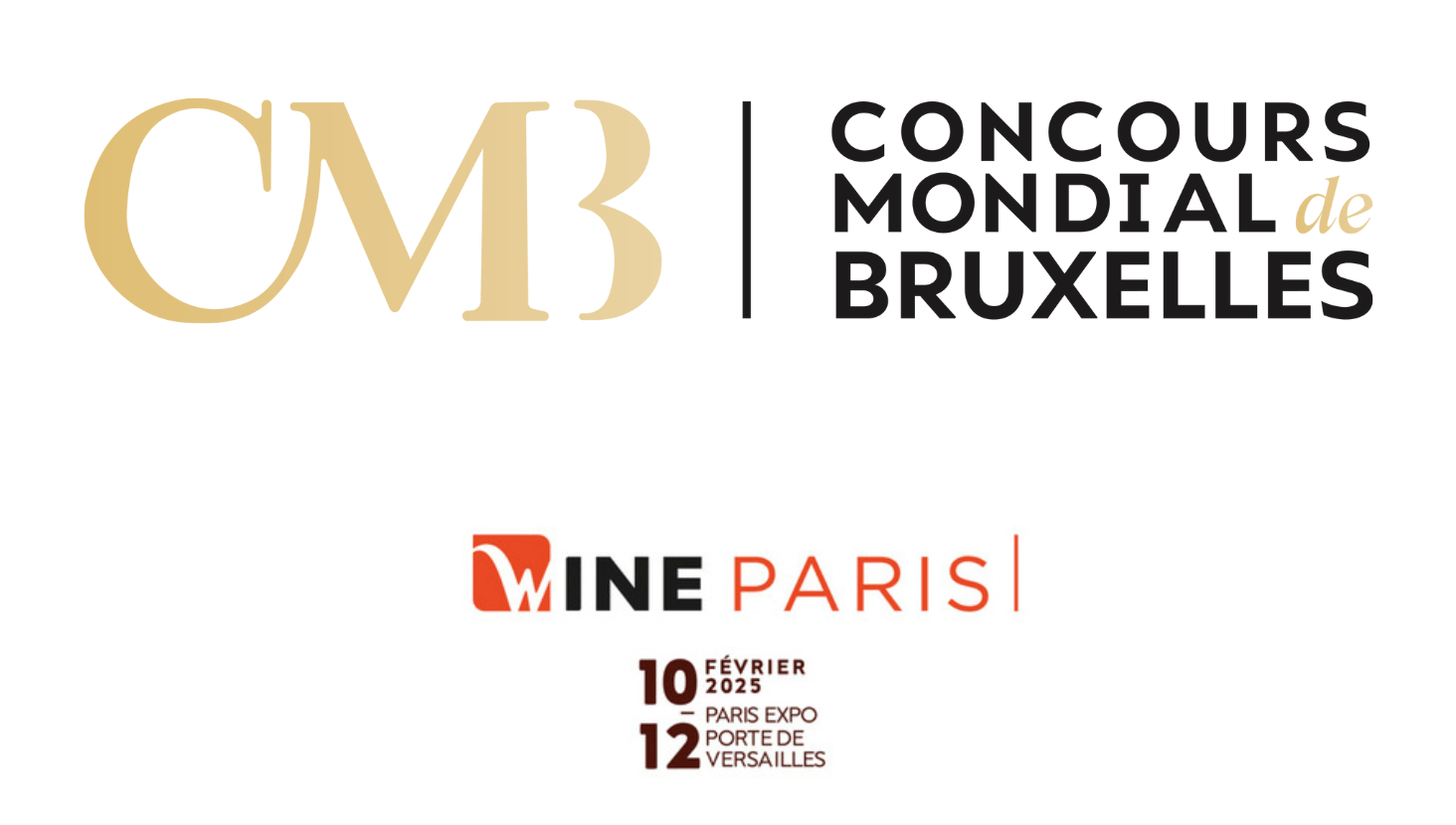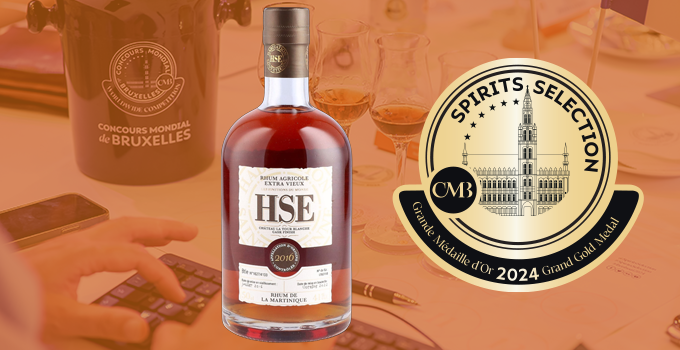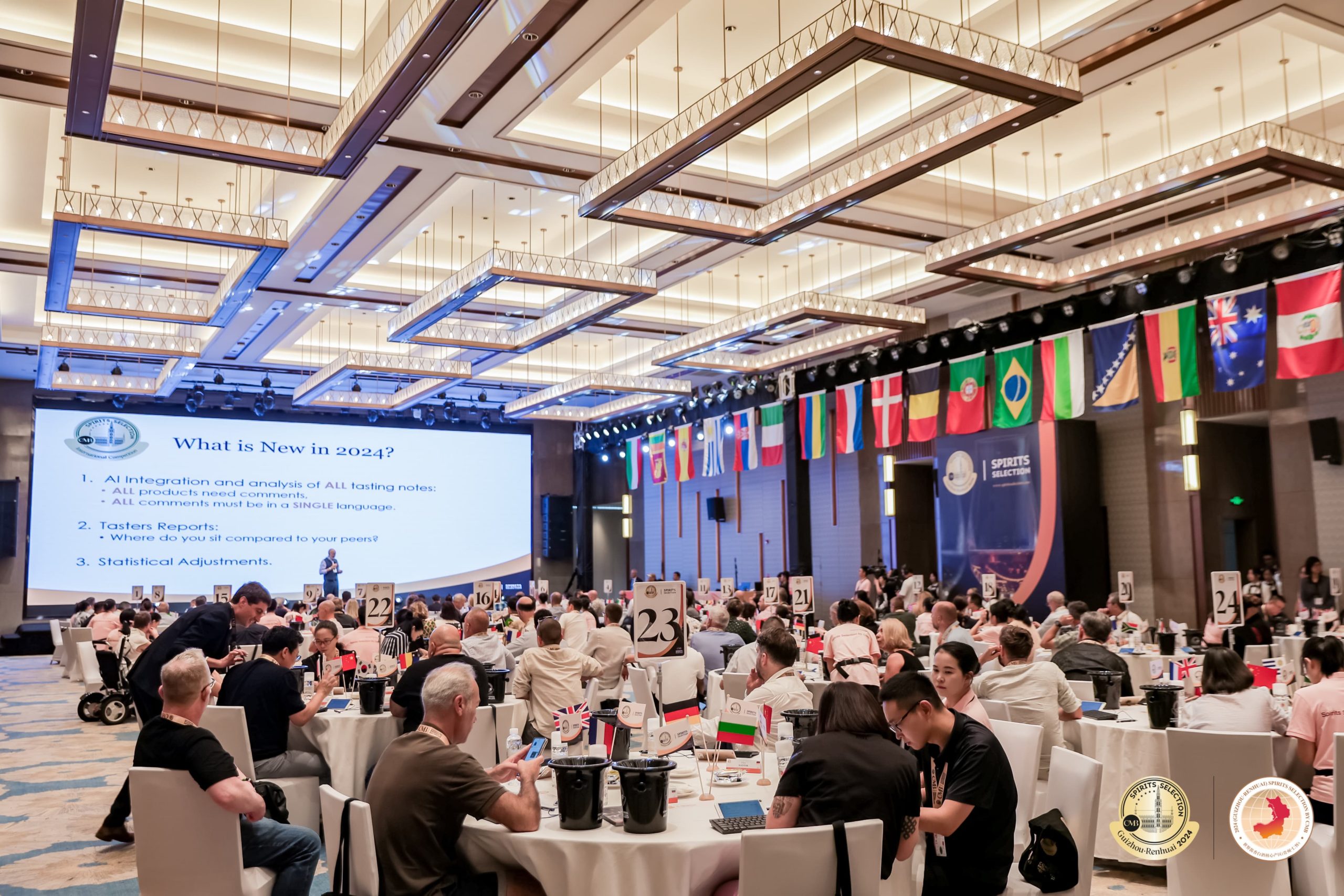Preserving Beauty: The Story Of Mabi Punch
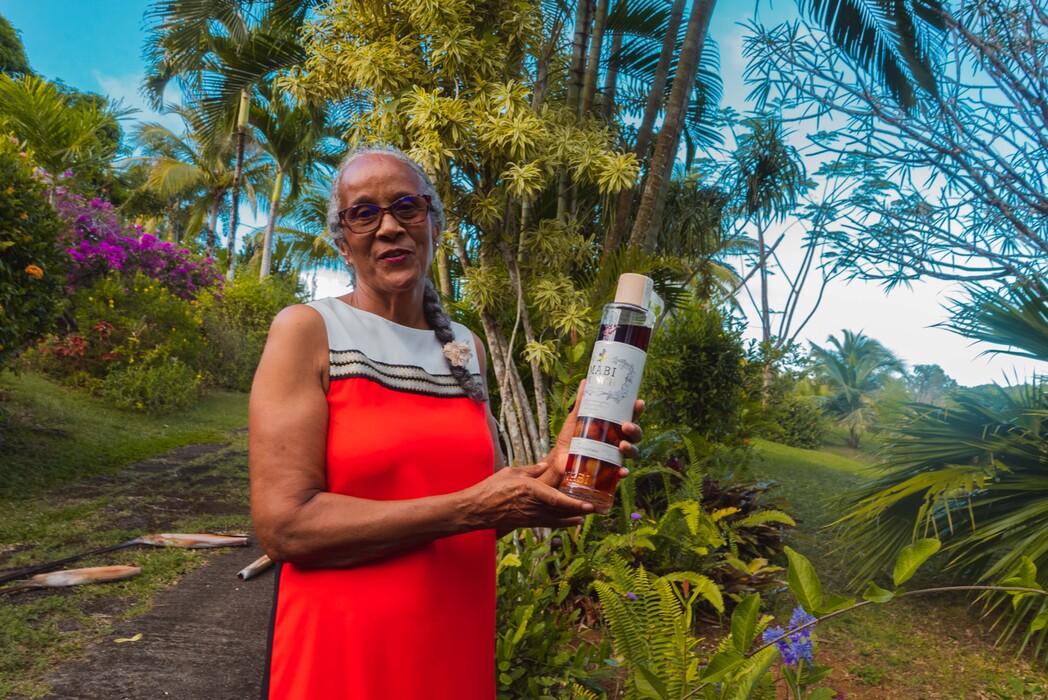
Mabi Punch is the story of three ambitious women: Marie-Anne and her two daughters, Ludmilla and Lory. Born from their passion for traditional punch, the brand also promotes fruit diversity in Guadeloupe and contributes to the economic development of the country. “We wanted to see our company grow, create jobs, and show young people that if they have the desire to make something beautiful, anything is possible.”
As soon as we connect from cloudy Amsterdam to sunny Guadeloupe, it’s evident that Marie-Anne is proud of her country’s traditions and family heritage. With a touch of melancholy in her voice, she reflects that Guadeloupe’s landscape has changed in recent years. “It isn’t how I remember it, but maybe Mabi can bring back a part of it.”
The traditional Guadeloupean punch had almost disappeared in recent years. “Some people would sell their homemade punch, but only at the local market. Of course, families would still make punch for their private consumption, but only for special occasions like Christmas,” Marie-Anne explains. For sure, the drink wasn’t a commercial product until the three women started Mabi back in 2004. “I wanted it to be special,” says Marie-Anne. “I wanted to create a beautiful product that could be purchased as a gift, something that would represent our island.”
To test out the “waters,” Marie-Anne first created a low quantity of punch in her kitchen. She bottled it herself and invited her family and friends for a tasting. The reactions were overwhelmingly positive, which gave Marie-Anne the confidence to launch the company together with her daughters. It was a family business with a commercial outlook, yet tradition and craft had to come first. “I wanted to make traditional punch, just like I had learned it from my mother and grandmother.” This means everything is done lovingly by hand and with close attention to detail. She adds, “There was always punch on the shelves in our home. People used to celebrate special events with this drink, but sadly, this tradition started to disappear in the early 80s.”
“I wanted to create a beautiful product that could be purchased as a gift, something that would represent our island.”
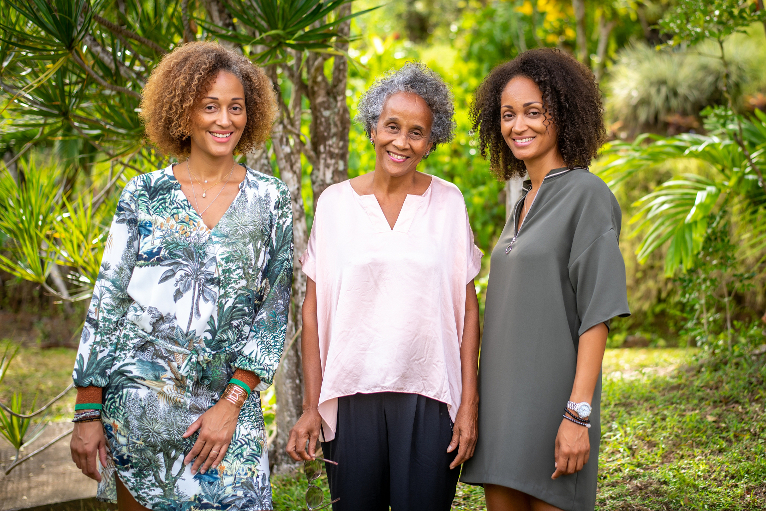
Picture: Marie-Anne Billy (center) and her two daughters, Ludmilla (left) and Lory (right). @Punch Mabi
Marie-Anne believes punch became unfashionable when new drink trends emerged in the 70s. Young people preferred whiskey or rhum with lime, which they referred to as ‘t-punch.’ It was quick and convenient; there was no lengthy preparation time and no strange ingredients. “At that time, traditional punch got some bad reputation as well. Parents warned their kids not to drink it at parties because they didn’t know what was in it,” Marie-Anne reflects. Indeed, the drink was nearly forgotten about for 20 years until Mabi brought it back on the market.
Marie-Anne’s punch met with a lot of enthusiasm in the local community. Soon, the family needed to source more bottles to keep up with the demand. The ever-increasing market also meant they had to hire more staff as staying on top of the production and fruit picking needs was a challenge for just three people. “From a three-women operation, we grew to a team of five. The number of people needed differs per fruit,” the ladies tell us. Still, the company’s growth didn’t impact its artisanal production. “We are determined to keep up our tradition. To this day, all work is done precisely as we did in 2004. The only difference is the number of bottles we need to fill these days and the number of hands required to do it.”
Humble Beginnings
When Mabi first launched, the family didn’t know much about business. “Making good punch is one thing, but starting up a company is another!” Also, launching a business can’t be easy in a male-focused world. Still, Marie-Anne assures us it wasn’t a difficult journey, and she always kept her chin up. “There are not many women in Guadeloupe who are business owners, and of course, we had some roadblocks on our way. But I just ignored the negativity and focused on our business instead. Everything is possible if you put your mind to it.”
Staying true to their artisanal philosophy, the Mabi ladies first sourced their bottles, labels, and closures from the local fairs. But before establishing Mabi’s signature look, it took a lot of trial and error with different designs. “Our early bottles looked fabulous with a bee’s wax closure. They were long and wide enough to contain the fruits. Only a small producer like us could make it in small quantities, so it was unique to our brand,” the ladies explain. “Unfortunately, the bottles were too tall. Most stores have a standard height between the shelves, and our punch didn’t fit. We had to find out the hard way.”
With lessons learned, Mabi quickly established itself as the company that put the traditional punch back on the map. They’re also the only women-owned craft company on the market. But it wasn’t long before big industries grew interested in the drink, and soon, mainstream punch started appearing in shops. Corporations have more means to produce large quantities, but the three women insist their quality stays unmatched: “You can taste the difference between Mabi and industrial punch. For instance, some producers use coconut milk, while we use real fruit and real coconut pieces macerated in rum. Mabi has the craft and the traditional approach, unlike big automated companies.”
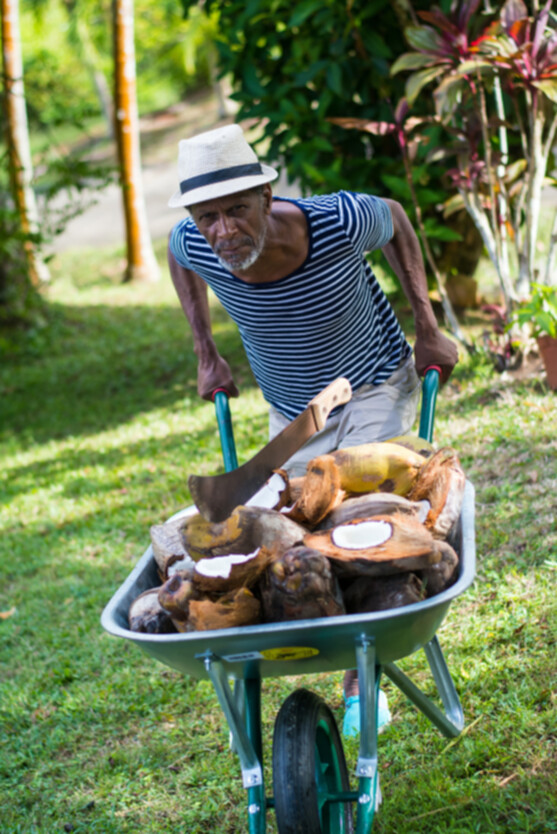
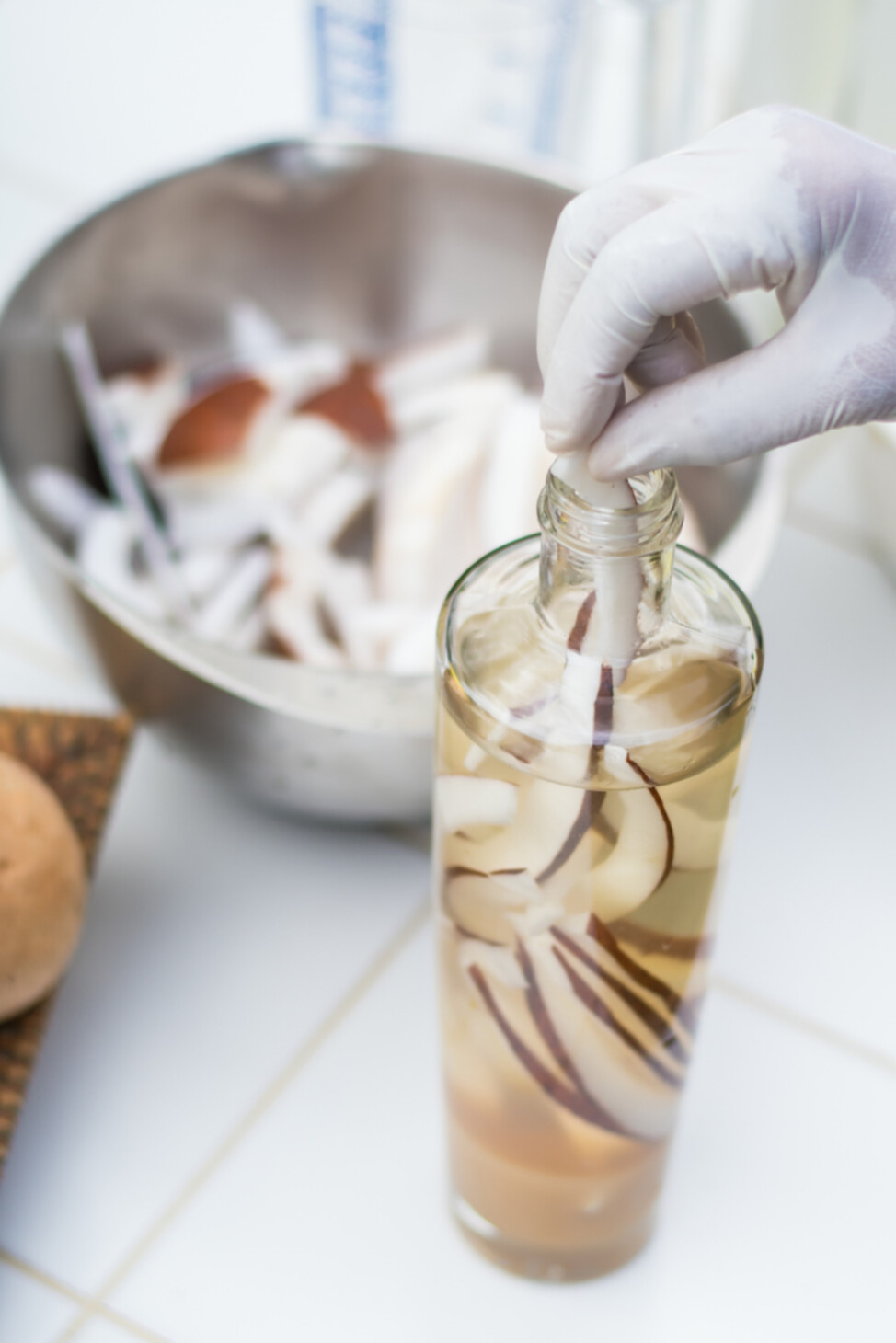
Picture: @Punch Mabi
A small producer like Mabi can also differentiate with a wider variety of unique flavours. The brand prides itself in offering 25 different punch types, including rare fruit that is hard to come by. Such produce is usually low in quantity, so it’s not an attractive grab for big brands. But for Mabi, this is an opportunity to showcase Guadeloupe’s biodiversity, a topic that is very close to their hearts. “We are committed to enhancing our country’s traditions and heritage by working with local produce. We encourage people to preserve fruit trees and plant some of the rare types that are going extinct,” the ladies explain. “We don’t want our fruit to be exposed to any pesticides; we want it to be natural and additive-free.” The women also assure us their stoppers are made of cork mixed with non-endangered wood, and their packaging uses recycled cardboard. All their processes are environmentally friendly since their work is driven by nature.
The brand prides itself in offering 25 different punch types, including rare fruit that is hard to come by.
Packing a Punch
Working with such a small team means all hands are full, and sometimes, family and friends step in to help. All production still takes place at Marie-Anne’s house. These days, the workload reaches 15.000 bottles a year, but the family still picks fruit by hand. “We fill the bottles on my terrasse, and for those who want to see it, we do it every morning from 7 am to 2 pm,” Marie-Anne smiles. “The early bird catches the punch production!”
What are the ingredients of the perfect punch? According to the ladies, a good punch only needs rhum agricole, fruit, and some sugar. Mabi has a few product variations that include other natural ingredients, like spices. Marie-Anne insists punch is simple to make, though it requires patience. “It takes a while to make a finished Mabi bottle, but you must understand that adding passion and love to the product should not be hasted,” she explains. “We will not rush the process to make money; business does not come first. That is the main difference between industrial producers and us.”
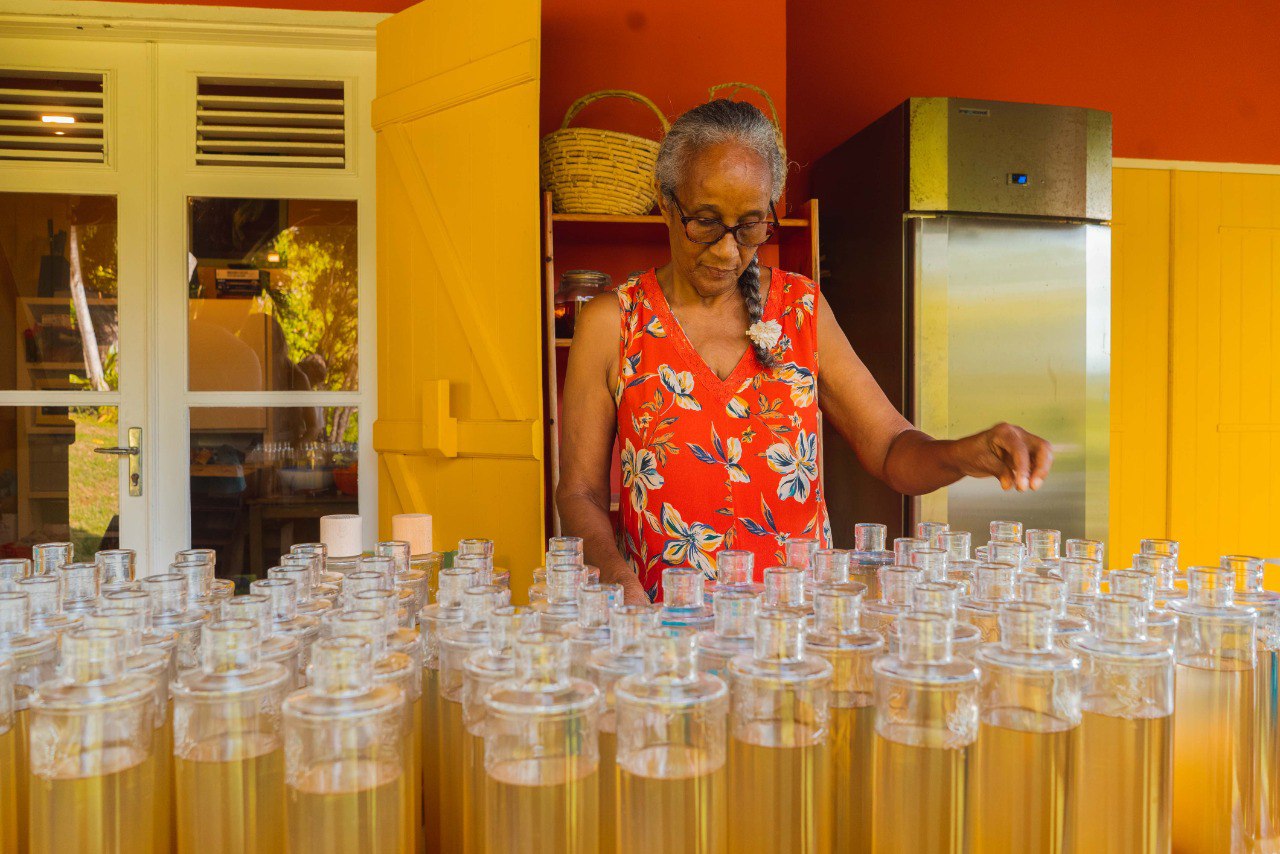
Picture: Marie-Anne Billy. ©Francisca Siza for Spirits Selection
Crafting such gorgeous products takes a lot of effort, but the ladies are committed to using only the best ingredients the island has to offer. At the moment, they work with unaged Montebello rhum agricole, which contains 50% alcohol. However, when the punch is ready to be sold, the percentage lowers to a more palatable 34%. The fruit used in Mabi products is harvested while fully ripe for maximum flavour. Of course, the production is seasonal, and the fruit is sourced from local farmers and forests. Some fruit types can be scarce, so Marie-Anne has also planted some trees in her garden.
Working with natural products means that their availability depends on mother nature. Sometimes, a particular fruit is out of stock because the production wasn’t big that year or the trees have been cut down. On the other hand, if a year produces a lot of passion fruit or mango, for example, Mabi will make more bottles of that fruit to compensate.
The cutting process is fully manual to preserve the fruit’s visual qualities. Machines can do it faster, but the result is messy and unrecognisable. “If the outcome isn’t beautiful, we won’t sell it,” the ladies conclude. Of course, fruit can also “misbehave” during maceration: it can turn brown or even dissolve. While still tasty, such liquid doesn’t look pleasing to the eye, so Marie-Anne and her daughters experiment to find better solutions to preserve the fruit.
Maceration Magic
No good punch exists without maceration: the natural extraction of all the flavours, which happens by soaking fruit in rhum. Mabi lets this transformation happen inside the bottle; they don’t use any tanks. They place fruit pieces inside the bottles and fill them with rhum (lowered in alcohol) mixed with sugar. This manual process makes each Mabi bottle genuinely unique.
For Marie-Anne, the traditional macerating period should be at least six months. However, some fruit can take up to two years to give out their flavours. A shorter macerating time is acceptable for private consumption — but acceptable is not the goal for Mabi; they want their punch to be perfect. “Anything from two weeks in the sun to two to three months in the kitchen would do the trick, but that’s not how we work. For the maracuja, for example, we find that one year is needed for the best result,” the ladies explain.
“No good punch exists without maceration: the natural extraction of all the flavours. For Marie-Anne, the traditional macerating period should be at least six months. However, some fruit can take up to two years to give out their flavours.”
In time, you can see how the liquid changes in colour, depending on the ingredients inside. It’s fascinating how the product keeps evolving, and should you decide to keep your bottle closed for some time, it will develop even further. According to Marie-Anne, a well-made punch will never turn bad. It is a gigantic, time-consuming job, but the outcome is worth the effort.
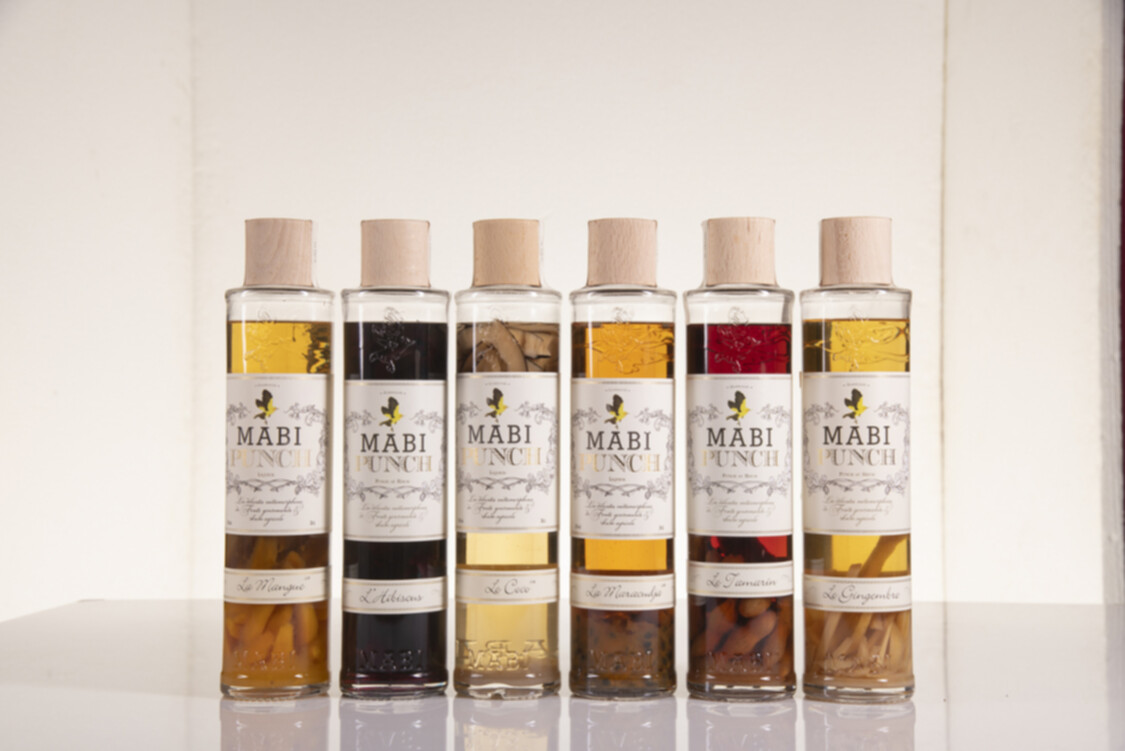
Picture: @Punch Mabi
So, what does the future look like for Mabi? “We want to stay artisanal, but we are open to export possibilities. We’re already focussing on European countries like Belgium and the Netherlands, and we’ve also visited New York and Japan for business.” Harvesting fruit comes with natural limitations, though expanding to other markets can offer new opportunities and flavours. For instance, a lychee punch would be an excellent variant for Japan.
With a brand as unique as Mabi, the world is their oyster, but one thing is sure: the family doesn’t want their growth to compromise their quality. As humble as they are, it is clear that Marie-Anne and her daughters positively impact their local community and beyond, and we’re confident the future will be fruitful for Mabi. So, who can keep their hands off their punch bottles the longest? For sure, we won’t!
Rene van Hoven & Martyna Halas
Authors of “Rum Rebels: A Celebration of Women Revolutionizing the Spirits Industry”
